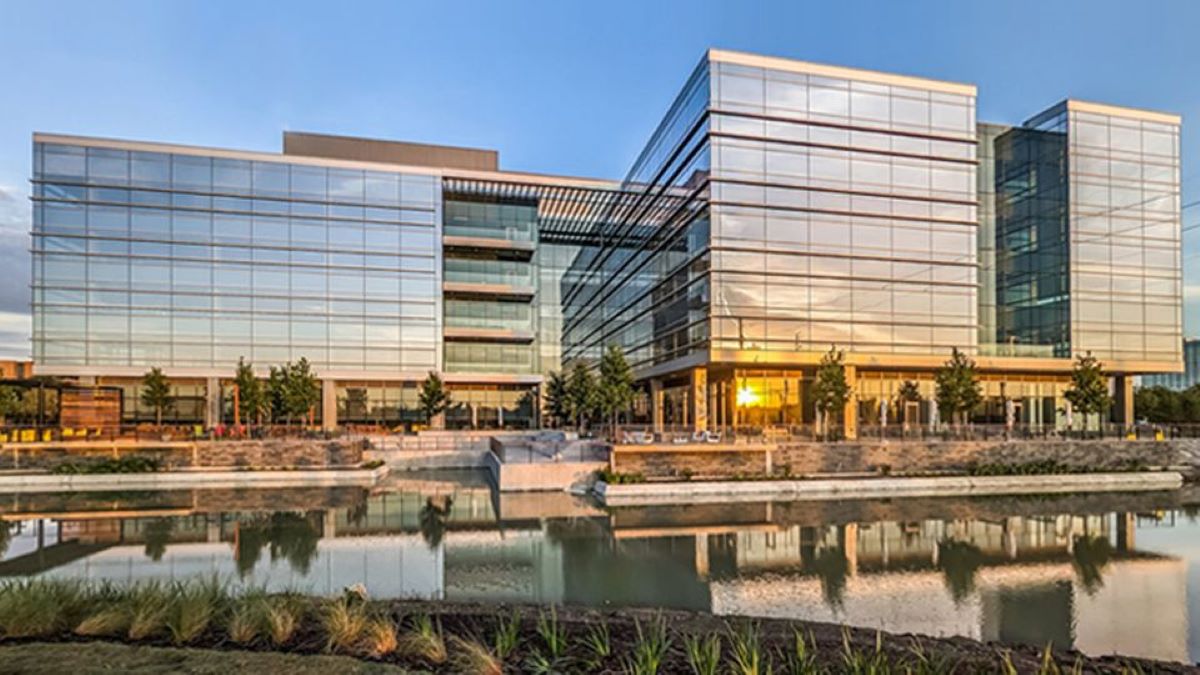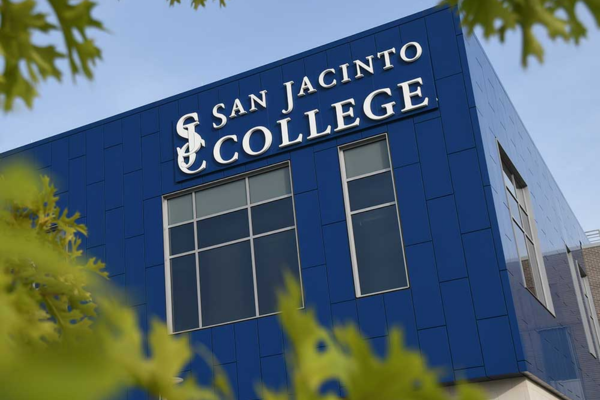Major Life Science Announcements Show Greater Houston Region’s Momentum
Published Oct 20, 2023 by Hailea Schultz
Two recent announcements, including a new life sciences campus opening in The Woodlands and an international company opening a biotech facility at Houston’s Levit Green, are a testament to the greater Houston region’s momentum in the life sciences industry.
The Alexandria Center for Advanced Technologies, a 12-acre life sciences campus, recently opened in The Woodlands at the former Lexicon Pharmaceuticals campus. The innovative development features the first purpose-built, cost-effective Class A laboratory infrastructure in the area. Additionally, the campus includes a suite of amenities, including conference and event space, a four-story parking garage, a courtyard and lawn, and a wellness and fitness center with pickleball courts.
Anchor tenant Nurix Therapeutics, a San Francisco-based clinical-stage biopharmaceutical, has moved into one of the first buildings. Nurix focuses on protein modulation to treat cancer and other challenging diseases.
"The Woodlands offers us a business-friendly, entrepreneurial environment that is critical to our growth,” said Arthur T. Sands, president and CEO of Nurix. “Alexandria's thoughtfully designed new campus provides us with state-of-the-art laboratory space and dynamic amenities that are key to helping us attract and retain top talent as we work to change the future of medicine through an exciting new modality of treating disease: targeted protein modulation."
According to the Houston Business Journal, the campus is still being built out but will ultimately offer an additional 325,000 square feet of building space and employ more than 1,000 workers.
The California-based real estate firm behind the new campus, Alexandria Real Estate Equities, said it is “committed to developing a commercial life science presence in The Woodlands,” like it did in New York City in 2010. As part of Alexandria’s strategic efforts, it is also extending its funding arm, the Alexandria Seed Capital Platform, to The Woodlands.
"Our expansion into Greater Houston, and The Woodlands in particular, creates a unique opportunity to help bolster the ecosystem's startup community,” said Jenna Foger, senior vice president of science and technology at Alexandria Real Estate Equities and Alexandria Venture Investments. “Through our leading strategic venture investment and seed capital platforms, we will engage local scientists and entrepreneurs to identify new technologies and companies for seed- and early-stage investment and introduce those that are most promising to our unparalleled network of biopharmaceutical industry experts and venture advisors to accelerate innovation in The Woodlands."
Alexandria’s new life sciences campus follows other announcements from California-based companies. Last year, Cellipont Bioservices announced it was building a 76,000-square-foot manufacturing facility.
In addition to the life science activity in The Woodlands, Houston recently attracted an international company.
Sino Biological, a leading biotech company headquartered in Beijing, China, announced the opening of its Center for Bioprocessing (C4B) at Levit Green, Houston’s 53-acre master-planned life sciences district.
The new center marks the company’s first U.S.-based manufacturing facility. CB4 will feature 10,000 square feet of commercial lab and office space and focus on contract research services, including custom recombinant protein and recombinant antibody development and manufacture.
“With the establishment of our new Center for Bioprocessing here in Houston, we are excited to mark a significant milestone in Sino Biological’s global presence,” said Dr. Yingmin Zhu, Head of the new C4B. “As the leader of C4B, I’m thrilled to share that our center is poised to revolutionize the field of bioprocessing. [Our team] looks forward to partnering with researchers and industry leaders worldwide to forge a brighter future in the life sciences.”
Strategically located in Building I at Levit Green, a 290,000-square-foot, five-story building adjacent to the world-renowned Texas Medical Center, Sino Biological will have the advantage of connecting with the region’s top researchers and professionals.
“Sino Biological’s expansion to Houston will further enhance Houston’s thriving life sciences and biotechnology ecosystem,” said Bob Harvey, president and CEO of the Greater Houston Partnership. “The presence of the company’s Center for Bioprocessing at Levit Green is a great example of the types of companies choosing to scale their operations in Houston at our cutting-edge life science facilities. We are pleased to welcome them to Houston.”
The Partnership actively works to bring top talent and businesses to the greater Houston region. Sino Biological is one of the many companies the Partnership has played a vital role in attracting to the Bayou City by providing potential site selections and market research.
Discover Houston’s life sciences sector.
 The Houston Report
The Houston Report





















